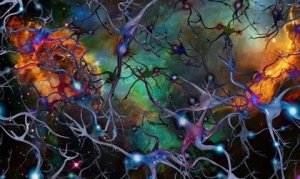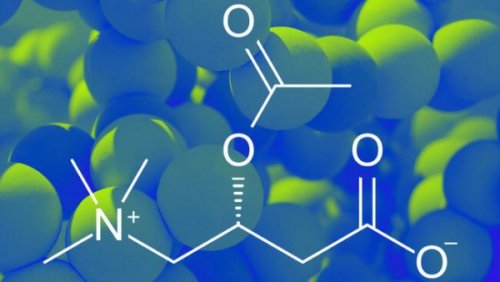Acetylcarnitine Deficiency and Depression


Written and verified by the psychologist Valeria Sabater
According to a study published just a few months ago by Stanford University, people diagnosed with severe depression, have a deficiency in a specific molecule: acetylcarnitine. This substance regulates stress, as well as the gene that controls glutamate, favoring the production of the BDNF protein.
Have you heard about or seen that dietary supplement called acetylcarnitine at the drugstore? They sell it as a nootropic to improve cognitive functions and you can purchase it in three forms:
- L-carnitine as a sports supplement.
- Propionyl l-carnitine for heart disease.
- Acetyl l-carnitine for the central nervous system.
However, although you could definitely take it as an external supplement (and always under medical supervision), you should know that your organism produces it naturally. In fact, healthy people synthesize more than enough of it through foods such as dairy products, fish, red meats, avocados, peanuts, etc.
Furthermore, there’s a common pharmaceutical use for acetylcarnitine in certain types of patients. It’s usually prescribed for conditions related to cognitive deterioration. Also, in cases of hyperactivity and high-stress situations.
Therefore, one could say that science has taken the usefulness of this fascinating molecule one step beyond. Because, according to new discoveries, it could be useful to design more effective antidepressants that have minimal to zero secondary effects.
Studies show that the administration of experimental drugs with acetylcarnitine offers results in patients with severe depression in a few days. In contrast, current antidepressants take two to four weeks to work.
Acetylcarnitine Deficiency, A New Biomarker for Depression

There are many people who get frustrated after a diagnosis such as depression. They feel this way for a fairly common reason. The lab tests aren’t always shown to them, be it the results of a blood test or of their CT scan.
As you may already know, psychological diagnoses are based on a series of interviews, tests, and observations by qualified professionals. This makes you think that if it isn’t in your blood, it just doesn’t exist. However, one could say that certain types of depression do have a biological correlation.
Moreover, there are many clinical tests capable of providing reliable and valid evidence that this psychological disorder is there, altering your life, your perception, and your emotions.
- For example, studies such as the one performed at the Max Planck Institute of Psychiatry in Munich show that people with depression have altered sleep patterns.
- Likewise, it’s also common to have low levels of magnesium and zinc, as revealed by studies such as the one performed at the University of Toronto.
- Also, a low level of serotonin or BDNF protein mediates depression.
- In addition, a low level of vitamin D also promotes depression and other psychological disorders.
The Stanford University School of Medicine published new research that adds importance to a new biomarker: acetylcarnitine. (To treat acetylcarnitine deficiency, that is). Let’s review more data on this topic.
Why Is a Low Level Related to Depression?
Dr. Natalie Rasgon, a psychiatry and behavioral science professor at Stanford University, defines this discovery as exciting. It definitely is for various reasons.
First of all, because it’ll allow the field of medicine to respond to those people who don’t show improvement with ordinary treatments for major depression. Secondly, because they may be able to develop drugs with minimal side effects.
If you’re currently suffering from depression, taking acetylcarnitine supplements won’t improve your symptoms. The ideal drug with such a component and with an adequate mechanism of action is yet to come to fruition. In the meantime, we’ll help you understand how this molecule works.
- People with major depression have an acetylcarnitine deficit. This is evident in suicidal people, mainly. They’ve, most likely, have had the condition forever and don’t show improvement with any of the many psychotropic drugs.
- Acetylcarnitine works as a mediator of the metabolism of fats and the energy production of our cells. It also reduces and calms excitatory nerve cells in the brain in regions such as the hippocampus and the frontal cortex.
- In addition, it regulates the production of glutamate and BDNF, an essential protein for the proper functioning of brain cells.
- Also, it helps eliminate waste molecules after the production of energy.
Should You Take Supplements for Acetylcarnitine Deficiency?

As we pointed out above, direct supplementation doesn’t work as a treatment for clinical depression. It’ll still require more work and the development of new drugs that mix this supplement with other specific components.
Furthermore, it’s still not recommended to consume these supplements in healthy people who don’t have any obvious cognitive problem. The reason is simple: if you take charge and modify your lifestyle and eating habits, then your brain will be in top shape. There’ll be no molecule, vitamin, or neurotransmitter deficiencies.
Here’s a list of foods rich in acetylcarnitine:
- Low-fat pork and chicken meat
- Also, cod, crab, anchovies and sea bass
- Milk and dairy products
- Avocados
- Peanuts and almonds
- Eggplants
- Carrots
- Apples, cherries, and peaches
- Lemons

To conclude, science continues to advance and now there’s a better understanding of how depression works. Little by little, they’ll reach that point where there are more effective strategies available to help the millions of people who are afflicted by depression.
According to a study published just a few months ago by Stanford University, people diagnosed with severe depression, have a deficiency in a specific molecule: acetylcarnitine. This substance regulates stress, as well as the gene that controls glutamate, favoring the production of the BDNF protein.
Have you heard about or seen that dietary supplement called acetylcarnitine at the drugstore? They sell it as a nootropic to improve cognitive functions and you can purchase it in three forms:
- L-carnitine as a sports supplement.
- Propionyl l-carnitine for heart disease.
- Acetyl l-carnitine for the central nervous system.
However, although you could definitely take it as an external supplement (and always under medical supervision), you should know that your organism produces it naturally. In fact, healthy people synthesize more than enough of it through foods such as dairy products, fish, red meats, avocados, peanuts, etc.
Furthermore, there’s a common pharmaceutical use for acetylcarnitine in certain types of patients. It’s usually prescribed for conditions related to cognitive deterioration. Also, in cases of hyperactivity and high-stress situations.
Therefore, one could say that science has taken the usefulness of this fascinating molecule one step beyond. Because, according to new discoveries, it could be useful to design more effective antidepressants that have minimal to zero secondary effects.
Studies show that the administration of experimental drugs with acetylcarnitine offers results in patients with severe depression in a few days. In contrast, current antidepressants take two to four weeks to work.
Acetylcarnitine Deficiency, A New Biomarker for Depression

There are many people who get frustrated after a diagnosis such as depression. They feel this way for a fairly common reason. The lab tests aren’t always shown to them, be it the results of a blood test or of their CT scan.
As you may already know, psychological diagnoses are based on a series of interviews, tests, and observations by qualified professionals. This makes you think that if it isn’t in your blood, it just doesn’t exist. However, one could say that certain types of depression do have a biological correlation.
Moreover, there are many clinical tests capable of providing reliable and valid evidence that this psychological disorder is there, altering your life, your perception, and your emotions.
- For example, studies such as the one performed at the Max Planck Institute of Psychiatry in Munich show that people with depression have altered sleep patterns.
- Likewise, it’s also common to have low levels of magnesium and zinc, as revealed by studies such as the one performed at the University of Toronto.
- Also, a low level of serotonin or BDNF protein mediates depression.
- In addition, a low level of vitamin D also promotes depression and other psychological disorders.
The Stanford University School of Medicine published new research that adds importance to a new biomarker: acetylcarnitine. (To treat acetylcarnitine deficiency, that is). Let’s review more data on this topic.
Why Is a Low Level Related to Depression?
Dr. Natalie Rasgon, a psychiatry and behavioral science professor at Stanford University, defines this discovery as exciting. It definitely is for various reasons.
First of all, because it’ll allow the field of medicine to respond to those people who don’t show improvement with ordinary treatments for major depression. Secondly, because they may be able to develop drugs with minimal side effects.
If you’re currently suffering from depression, taking acetylcarnitine supplements won’t improve your symptoms. The ideal drug with such a component and with an adequate mechanism of action is yet to come to fruition. In the meantime, we’ll help you understand how this molecule works.
- People with major depression have an acetylcarnitine deficit. This is evident in suicidal people, mainly. They’ve, most likely, have had the condition forever and don’t show improvement with any of the many psychotropic drugs.
- Acetylcarnitine works as a mediator of the metabolism of fats and the energy production of our cells. It also reduces and calms excitatory nerve cells in the brain in regions such as the hippocampus and the frontal cortex.
- In addition, it regulates the production of glutamate and BDNF, an essential protein for the proper functioning of brain cells.
- Also, it helps eliminate waste molecules after the production of energy.
Should You Take Supplements for Acetylcarnitine Deficiency?

As we pointed out above, direct supplementation doesn’t work as a treatment for clinical depression. It’ll still require more work and the development of new drugs that mix this supplement with other specific components.
Furthermore, it’s still not recommended to consume these supplements in healthy people who don’t have any obvious cognitive problem. The reason is simple: if you take charge and modify your lifestyle and eating habits, then your brain will be in top shape. There’ll be no molecule, vitamin, or neurotransmitter deficiencies.
Here’s a list of foods rich in acetylcarnitine:
- Low-fat pork and chicken meat
- Also, cod, crab, anchovies and sea bass
- Milk and dairy products
- Avocados
- Peanuts and almonds
- Eggplants
- Carrots
- Apples, cherries, and peaches
- Lemons

To conclude, science continues to advance and now there’s a better understanding of how depression works. Little by little, they’ll reach that point where there are more effective strategies available to help the millions of people who are afflicted by depression.
This text is provided for informational purposes only and does not replace consultation with a professional. If in doubt, consult your specialist.







